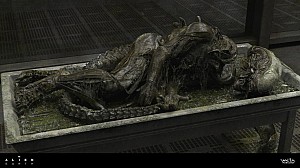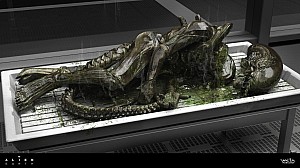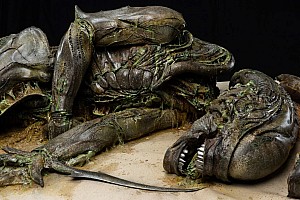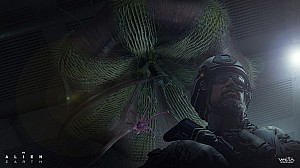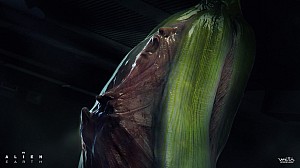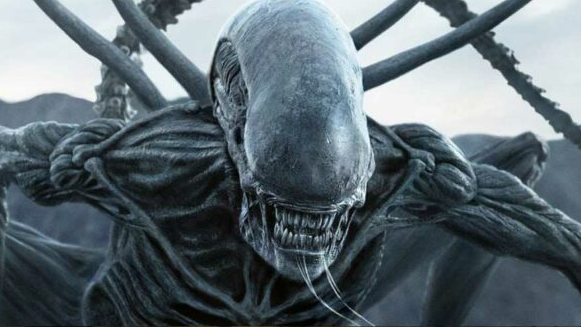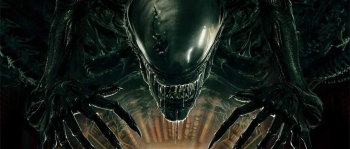The Analysis: Prometheus as a religious movie
Prometheus Forum Topic
gchristnsn
MemberOvomorphJul 18, 20121796 Views7 Replies[url=http://www.prometheus-movie.com/community/forums/topic/9307]Technological interpretation[/url] should be preferred.
The actual meaning of Prometheus is not obvious, and after I had watched it, I thought that it's a yet another dull parody to Aliens. I tried to answer some opened questions though and found that the movie actually contains profound religious and humanistic meaning, and answers are there, but it's necessary to interpret facts and actions to get assumptions which then will lead to the answers.
I think that Prometheus is actually a dark comedy based on the Alien franchise. It resembles Alien 4 (which is also a dark comedy by nature) in many ways. Prometheus is less dark but more comedial, and it extends and derives many from the fourth and also from the third movie. Alien 3 is a drama which sets some profound questions about human nature and humanism, and the first two Alien moves are sci-fi horrors.
There are two major opened questions in Prometheus:
1. Why the progenitors invited people (and probably other offspring races) not to their home planet but to some other place?
2. Why the progenitors were angry towards people and intended to exterminate them?
To answer these questions we need to find a context in which we could extend the clues, and obviously it's the Bible, because there are many clues related to it. The progenitors had created humans by their image and likeness (as Yahweh did in the Bible) using the liquid of life (let's call it so), and there are probably someone (a yet another ancestral race represented by the sculpture of a giant face), who created the progenitors by their image and likeness, and so on, so the notion of God is recursive here. But there is one important thing - the soul, it should be passed from the actual God through the lineage of races created in a such way. We can conclude this from the notion that robots have no soul, although they are created by the human image and likeness, and this (the soul, recursion and parental relations between the progenitors, humans and robots) should be the central reason of the questions.
So, why the progenitors invited humans not to their home planet but at some other place, which seems to be a warehouse of biological weapon (let's call it the liquid of death)? It seems that they did not intend to meet their descendants at all (the other warehouse ships were certainly empty, or Elisabeth would be killed), because there (at the sanctuary where the exploding head was found) was also the liquid of life (this may be not two but one metamorphic liquid) which made the head to explode, and the descendants should chose what liquid they would get to their home: they may choose the liquid of life and become progenitors themselves, or choose the liquid of death which will exterminate them. The progenitors may have obtained the liquids by the same way, although, this may be the same liquid and its behavior may be defined by something other, let's assume that it could detect cruelty or the level of intelligence. The liquid was not benevolent to humans (and probably to the worms from this planet, from which the local worm-like aliens may had originated), and the extermination of the humanity will definitely happen, because the weapon (aliens) is only controllable in the form of a liquid and brings imminent death and devastation in any other form. The metamorphic way of development [same as of insects] makes the weapon to resemble the plagues of Egypt sent for the sins of people from the Old Testament, this makes the liquid a manifestation of God's judgement. So, the progenitors had left there just because of the accident caused by the worm-like aliens - there are the same sings of damage on the space suits of humans and progenitors, and the warehouses probably thought to be completely non-habitable (it's quite dangerous to stay there despite of the fact that the liquid is basically harmless for the progenitors themselves).
We have a yet another question left, why the progenitors intended to exterminate their descendants? But did they really intend? Would you create something by the price of your life just to destroy it latter? And they actually not absolutely certainly intended to exterminate humans (they may have left this as a choice for themselves which is explained above). There are other reasons for the anger of the awakened progenitor and this probably are the humanism and the cruelty. The choice described above implies that only races who don't tend to hate and murder themselves (i.e. humane races) are destined to live. Probably, the progenitors also believed that only beings which bear a soul from the actual God (and thus obey His law) could be humane, and life should be spread not through terraforming and expansion, but through the creation in their sense, so they hate inhumane expansive beings such as robots and races who create them.
The robot shown in Prometheus is indeed inhumane and hilarious. It doesn't obey Asimov laws (it may was reprogrammed by Weyland) by performing a cruel scientific experiment on scientists (what a sarcasm!), and thinks of his kind as of higher race. The same as humans who are generally don't obey the commandments. But is this the only reason to kill Weyland and other team members? Probably there is a yet another: Weyland asked for immortality but the progenitors gave their lives to create descendant races, and the progenitor may have treated Weyland's wish as an abuse and a sign of an inhumane and expansive race (the progenitor decided that it should be exterminated and tried to do this). In general, this hate may be an allusion to the confrontation of humans against robots, which in turn may be a sign of a deconstruction (oh no, the deconstruction again) where God's anger towards sinners is compared with the confrontation between humans and robots out of control, but the "God" is a just another humanoid race in this case and the "robots" are humans themselves.
Was the progenitor right and people are hopeless? It's reasonable to get rid of a cruel inhumane and expansive race which had obtained access to the technology equal to progenitor's one and hide your home planet from it (although the question about the possibility of existence of a humane race originated not from creation but from the natural evolution is profound and interesting by itself). But not all the humanity is cruel, Elizabeth's agenda was to find answers to the questions of the genesis of the humanity and its progenitors, and probably only she deserves to talk with them.
Are you an avid Alien fan looking for a dedicated online community of likeminded fans? Look no further! Create your own profile today and take part in our forums and gain XP points for all the content you post!




